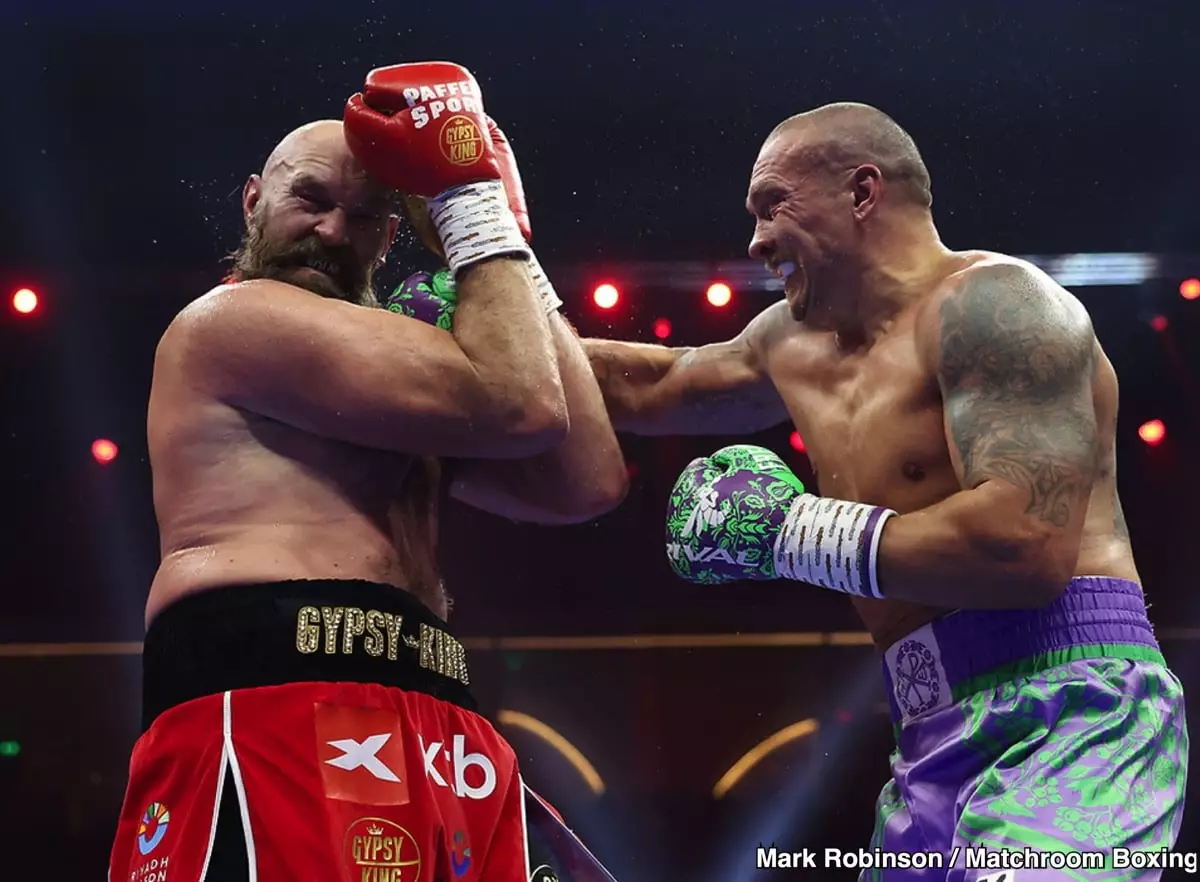In the world of professional boxing, where every jab and hook can tip the scales of victory, strategy and conditioning are pivotal elements that can sway the outcome of a fight. The recent bout between Tyson Fury and Oleksandr Usyk exemplifies this dynamic. Following Fury’s unanimous decision loss to Usyk, Paulie Malignaggi, a seasoned commentator, offered thoughtful insights into the fight’s tactical nuances. Analyzing Fury’s performance, particularly in the later rounds, raises important questions about the fighter’s preparedness and his approach under pressure.
Tyson Fury’s heavyweight presence is undeniable. However, stepping into the ring at 281 pounds could be seen as both a strength and a liability. Malignaggi noted that Fury appeared fatigued when the fight reached its latter stages. Such weight fluctuation often comes with its own set of challenges, particularly in terms of stamina. Fury’s condition seemed compromised, failing to deliver the knockout prowess that had characterized his previous victories. The extra weight, coupled with Usyk’s relentless movement, painted a picture of a fighter outmatched in endurance, leading to a lackluster performance when it mattered most.
As the rounds progressed, Fury’s strategy shifted from aggression to holding—an indicator that he may have succumbed to exhaustion. This tactical decision to clinch rather than trade blows highlights a fundamental flaw in his approach: he became reactive rather than proactive. For a fighter of Fury’s stature, this shift can be detrimental as opponents like Usyk thrive in opportunities created by a lack of offensive initiative.
Oleksandr Usyk, meanwhile, demonstrated a masterclass in tactical boxing. With a record free from losses, he entered the ring exhibiting confidence and skill. Malignaggi pointed out that Usyk’s movement and ability to create punch angles played a significant role in nullifying Fury’s advantages. Notably, Usyk’s feints and agile footwork prevented Fury from establishing any rhythm, allowing him to land cleaner shots despite being the ‘smaller’ fighter in terms of reach and weight.
Usyk’s ability to dictate the pace and style of the fight emphasized his boxing IQ. Instead of allowing Fury to impose his size, Usyk utilized lateral movements and precise counter-punching to keep Fury guessing. These techniques not only showcased Usyk’s technical prowess but also highlighted the importance of versatility in a fighter’s game plan.
Malignaggi referred to the match as a competitive affair, with both fighters demonstrating moments of brilliance. However, he emphasized that while Fury exhibited flashes of effective boxing—like landing sharp one-twos and uppercuts—it wasn’t sufficient against Usyk’s constant pressure and strategic engagement. The last two rounds, in particular, seemingly sealed Fury’s fate. Instead of aggressively pursuing the win, Fury focused on holding, which led to Usyk sealing the decision through tactical endurance.
This scenario raises questions about how fighters adapt when the tide turns against them. Fury’s decision to hold illustrated a departure from his previous approach, which often relied on intimidation and physicality. The final rounds of any tight match are critical; Fury’s inability to step up during this gut check period speaks volumes about not just conditioning but mental readiness in a championship environment.
The aftermath of Fury’s loss is layered with insights that extend beyond mere statistics. It serves as a reminder that boxing is as much a mental game as it is a physical contest. As fighters like Fury reassess their tactics and conditioning, it’s essential to consider the implications of every choice made inside the ring.
Usyk’s victory continues to affirm the importance of strategy, adaptability, and mental fortitude in the sport. Meanwhile, Fury’s experience invites introspection on the need for robust training and tactical versatility. As the heavyweight landscape evolves, so will the narratives, with fighters learning that both physical and psychological preparedness are integral to success in the ring.

